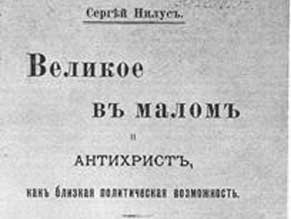|
World Jewish News

Documenting an alleged Jewish plot for taking over the world, the text was written by the Russian secret police in 1901 and then disseminated internationally in the early 20th century.
|
Moscow prosecutor refuses to ban Protocols of the Elders of Zion, one of the most infamous fake anti-Semitic book
29.03.2011, Anti-Semitism Moscow's chief prosecutor has refused to ban the sale of the Protocols of the Elders of Zion, one of the world's most infamous fake anti-Semitic texts, a top human rights group said Monday.
The Moscow-based For Human Rights organization had asked the city to eitherban the sale of the book or to publish it with a clear notice stating that the text was a fake.
Documenting an alleged Jewish plot for taking over the world, the text was written by the Russian secret police in 1901 and then disseminated internationally in the early 20th century.
Its original publication coincided with the tsarist wave of anti-Jewish pogroms that began in the 1880s.
The rights organization said Moscow's chief prosecutor based his decision on a 2009 recommendation from the Russian Academy of Sciences' Psychology Institute, which concluded that its publication did not break Russian law.
The Institute's report said the text "lacks information leading to acts of violence against other (non-Russian) nationalities, social and religious groups."
For Human Rights said it has appealed the Moscow prosecutor's decision.
A list of illegal extremist publications prepared by the Russian justice ministry includes more than 800 books, including Islamist pamphlets, neo-Nazi literature and anti-Semitic brochures.
The list also includes material published by the US-based Jehovah's Witnesses.
EJP
|
|
